
As a pre-health student, you will work with your academic advisors plus a member of the Graduate School Planning Advisors to design a course of study that is suited to your career goals. Your major and the pre-requisites taken for your specific area will help you get the foundational knowledge needed to advance into graduate health sciences. The Mount’s liberal arts foundation will help prepare you as a critical thinker, an ethical leader, and a strong communicator. These qualities make for well-rounded, knowledgeable candidates for graduate programs in the health sciences.
You may choose any undergraduate major that fits your interest area, though some majors have certain graduate school pre-requisites built in and others may require you to add them in as electives. Nearly all graduate level health sciences programs require a strong grasp on the sciences, though the requirements will vary from program to program. Your Graduate School Planning Advisor will help you understand exactly what is required to meet your career goals.
Hear from the Graduate School Planning Advisors directly!
| Advantages for Pre-Health Students: | MSJ Students Have Gone to Grad Programs at: |
|
|
Athletic Training
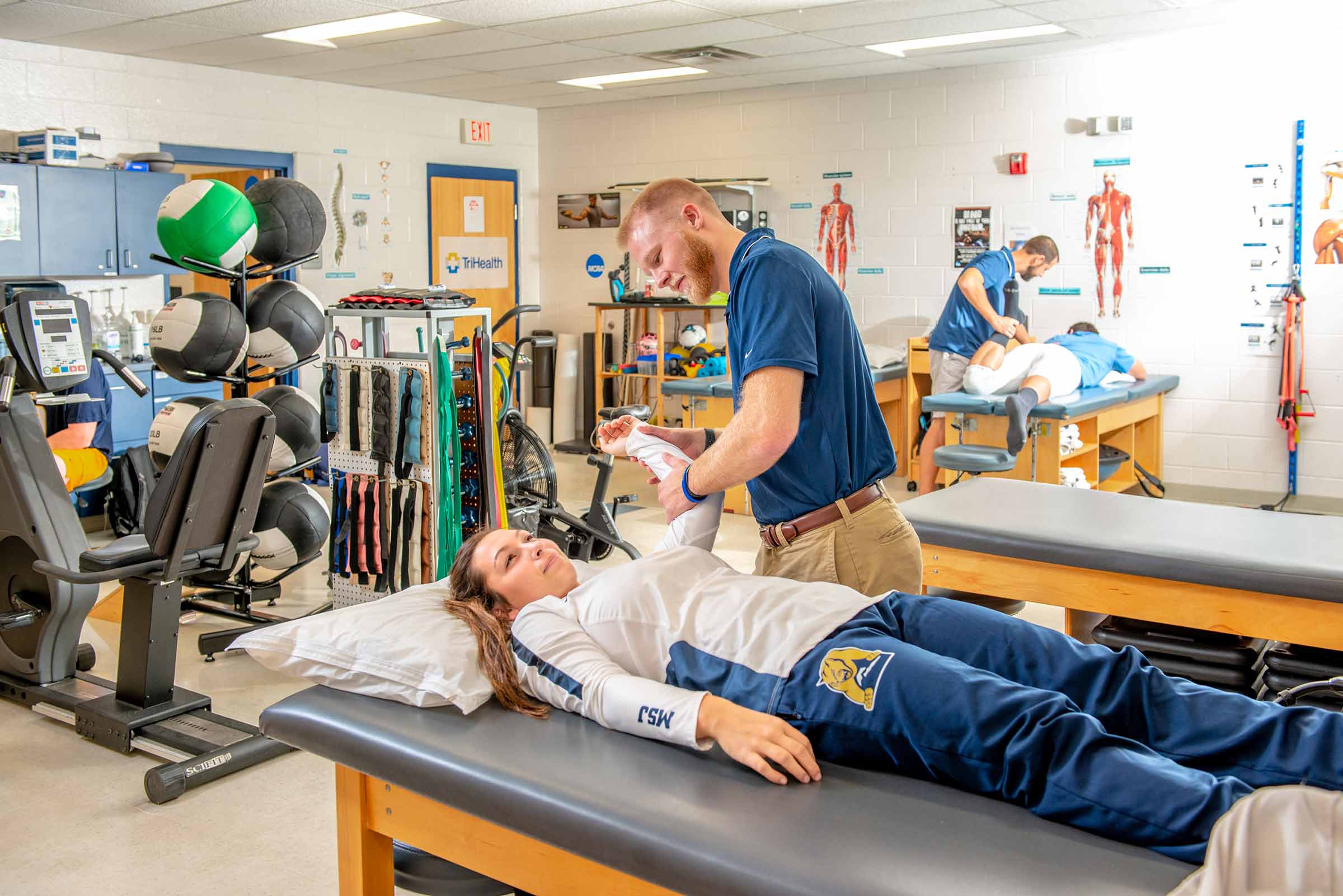
- Hospitals, clinics, primary care offices
- Athletics, Sports: professional, collegiate, high school
- Law enforcement, military
- Occupational settings (corporate wellness)
- Performing arts
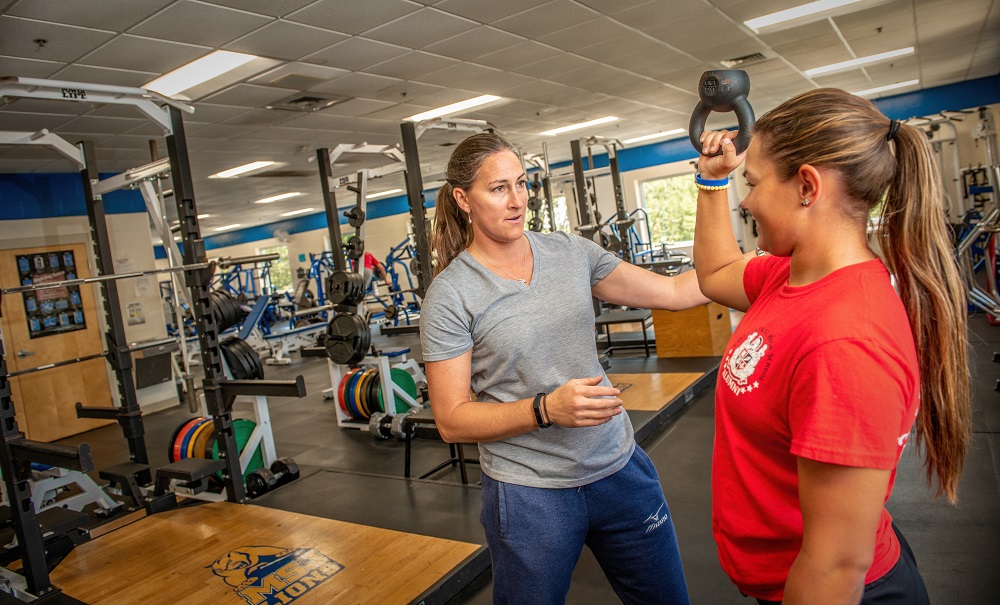
Audiology
- Hospital
- Private Practice
- Long-term Care Facilities
- Schools (all levels)
- Developmental Learning Centers
- Treatment Centers
- Facilities for People with Intellectual Disabilities
- State/Federal Government Offices
- Public Heath Offices
- Non-Profits
- Military
- Hearing Conservation Programs
Chiropractic Medicine
- Hospitals, clinics
- Private practice
- Athletics, Sports: professional, collegiate
Behavioral and Mental Health Counseling
- Master in Mental Health or Clinical Counseling
- Master in Social Work (MSW)
- Doctor in Clinical Psychology (PsyD)
- Doctor of Philosophy in Psychology (PhD)
- Doctor of Education in School Psychology or Educational Psychology (EdD)
- Addiction Counseling
- Career Counseling
- Clinical Mental Health or Community Agency Counseling
- Marriage, Couple, Family Counseling
- School Counseling
- Student Affairs and College Counseling
- Gerontological Counseling
- Counselor Education & Supervision
- Research
The GRE is an exam that is required for admission into some graduate programs. It is a four-hour computerized exam that includes two multiple-choice sections (Verbal Reasoning and Quantitative Reasoning) and an Analytical Writing Section. The reasoning sections are scored individually on a scale from 130 to 170 in one point increments and the writing section is scored on a scale from 0 to 6 in 0.5 point increments. The GRE is offered year-round but you must wait 60 days to retake the exam. Students should take the exam 12-18 months before the expected date of entry to the professional program. Each school has its own minimum requirements. Additional information and free test preparation materials are available at http://www.ets.org/gre.
Dentistry
- Doctorate of Dental Medicine (DMD)
- Doctorate of Dental Surgery (DDS)
- Post graduate work for orthodontia or oral surgery
- Private practice, general or specialist
- Academic dentistry
- Research
- Public health
- International healthcare
- Federal government
- Military
Genetic Counseling
- Hospitals, medical centers, clinics
- Diagnostic laboratories
- Health maintenance organizations
- Non-profits
- Government
Medicine (Allopathic or Osteopathic)
Physicians diagnose and treat disease. Following undergraduate education, students train for four years in medical school. Medical school training is then followed by three or more years of residency and fellowship training.
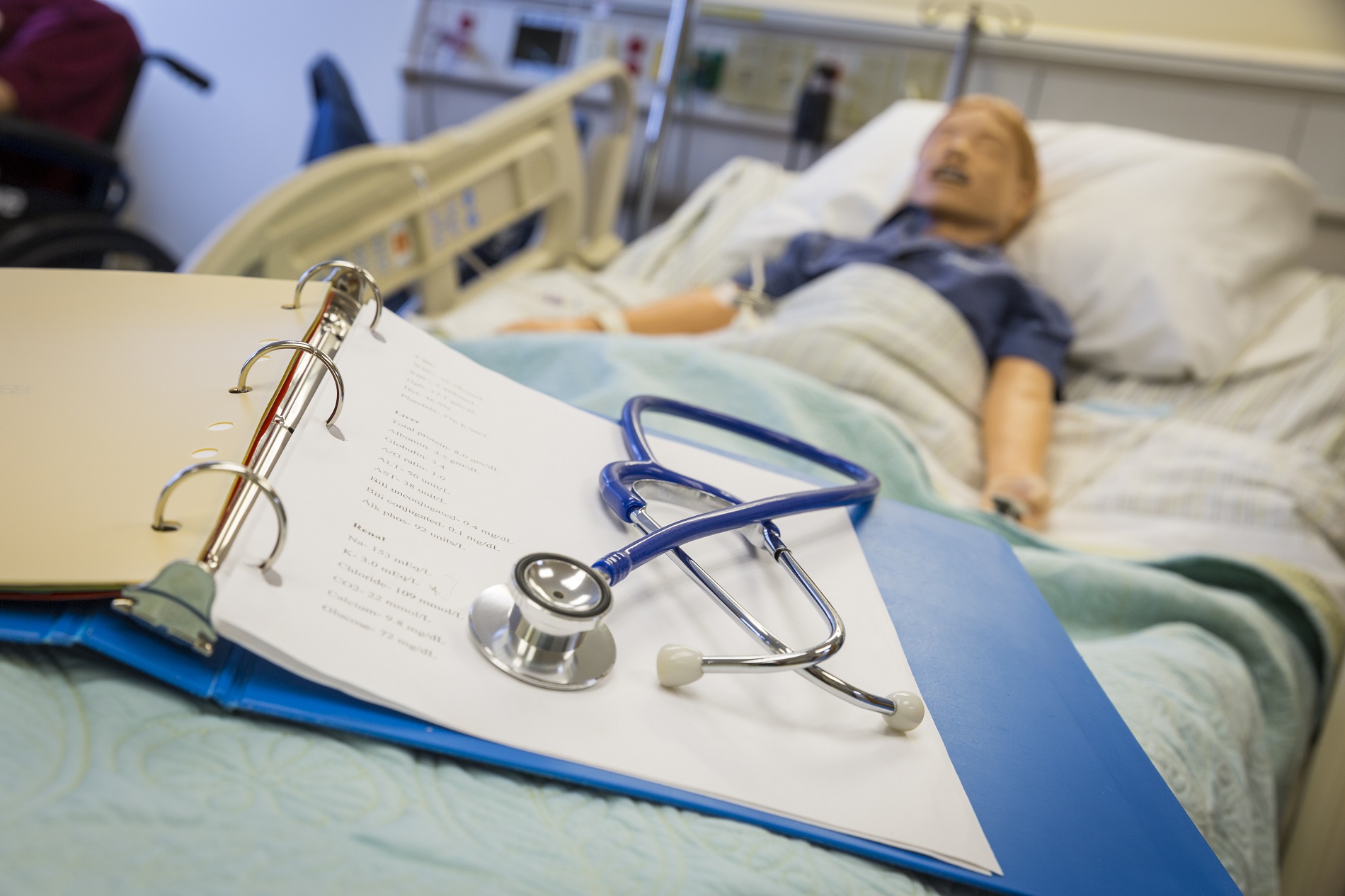
Doctorate, with some post graduate training for specializations.
- Doctorate of Medicine (MD): Allopathic medical school training
- Doctorate of Osteopathic Medicine (DO): Osteopathic medical school training
- Anesthesiology
- Cardiovascular medicine
- Dermatology
- Emergency medicine
- Family medicine
- Internal medicine
- Neurology
- Oncology
- Orthopedics
- Pediatrics
- Psychiatry
- Radiation oncology
- Sports medicine
- Surgery
Nursing (Graduate Pre-Licensure)
Nursing is the art and science of caring which should be universally accessible, and practiced in partnership with clients and colleagues from other disciplines. Nursing's professional and social accountability is exercised through a commitment to evidence-based practice, the principles of planned change, quality improvement, life-long learning, cultural sensitivity and participation in professional, social, and political arenas (Mount St. Joseph University Nursing Philosophy, 2006).
Colleges/universities typically offer four year programs with studies in nursing, sciences, and liberal arts that grant a Bachelor Degree in Nursing (BSN). Now, colleges and universities have second degree options. These programs are developed for individuals with bachelor degrees in other areas of study that want to return to school to obtain a nursing degree. Degrees granted may be at the bachelor level or higher. All of these programs allow an individual upon successful completion of the course of study to take the NCLEX Exam (licensing exam needed to practice nursing).
Mount St. Joseph University offers pre-licensure nursing programs that include the traditional BSN program and a second degree option, the accelerated MAGELIN (entry level MSN) program. Mount St. Joseph University also offers graduate programs in nursing (MSN, DNP).
You may choose any undergraduate major that fits your interest. Some to consider for this major would be biology, biomedical sciences, chemistry, health and exercise science, or natural science.
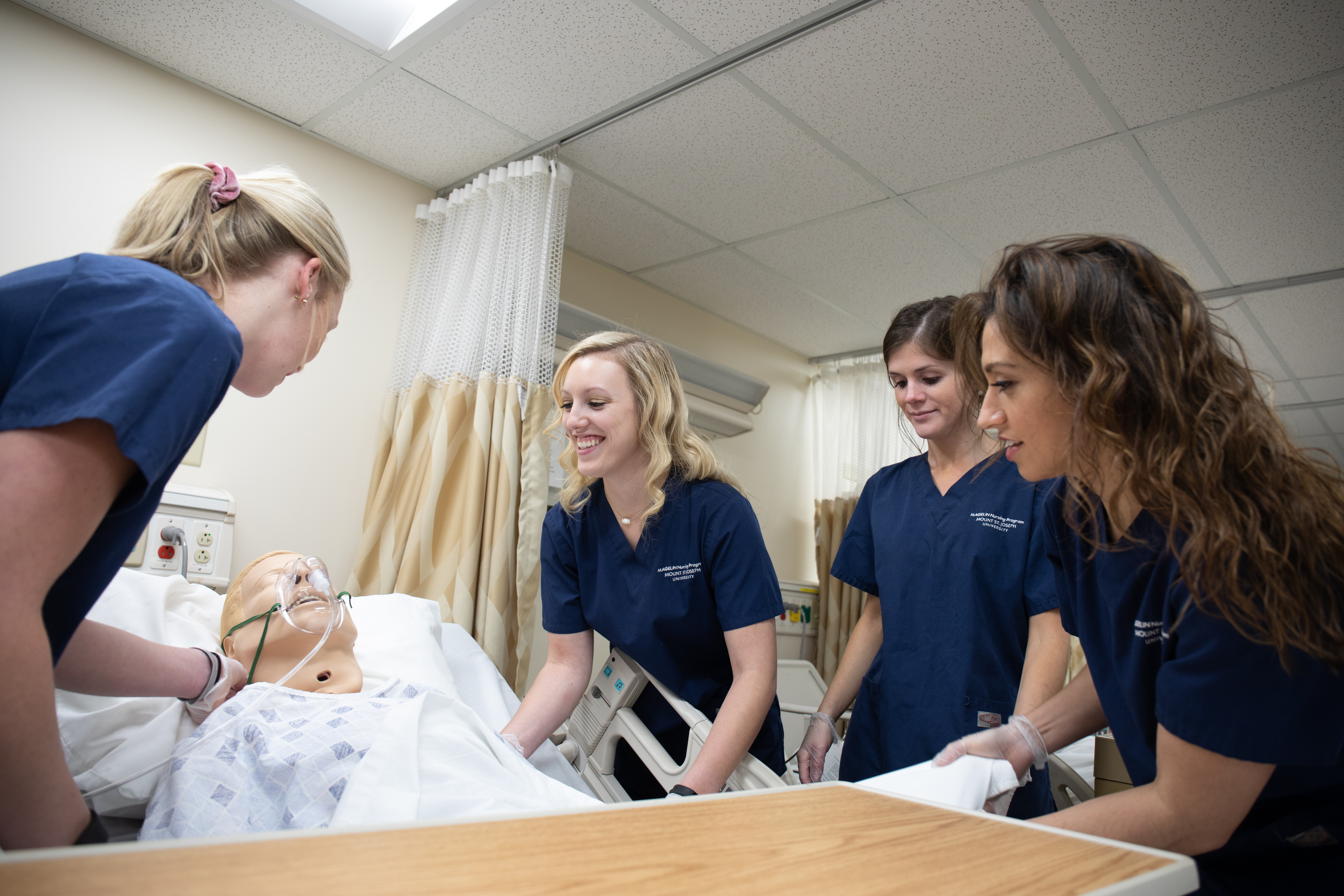
Optometry
- Hospitals
- Private, group practice
- Retail optical settings
- Academic or industry research
- Professional sports
- Government
- Consulting
Occupational Therapy
- Master of Science in Occupational Therapy (MOT)
- Doctor of Occupational Therapy (OTD)
Generally, programs are moving away from the MOT and moving toward an entry level OTD (masters not required). As long as students enroll in an accredited program that allows them to sit for the NBCOT exam at the end of the graduate program, they can be certified to practice.
- Hospitals
- Private practice, physician offices
- Schools
- Home health services
- Long term care facilities
Pharmacy
- Retail pharmacy
- Hospitals, medical centers, clinics
- Physician offices
- Poison control centers
- Nursing homes
- Government, military
Physician Assistant Studies
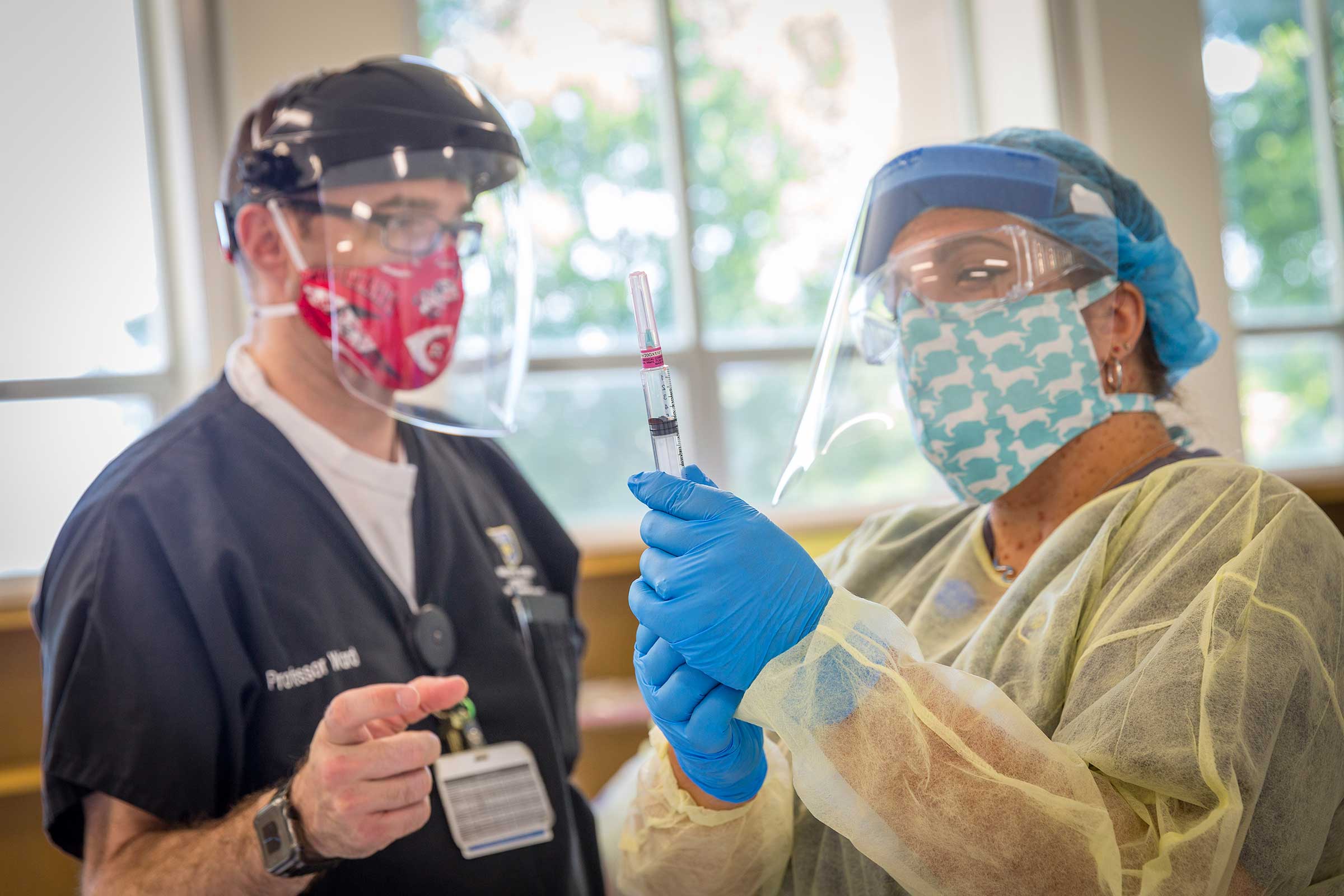
Master of Physician Assistant Studies (MPAS)
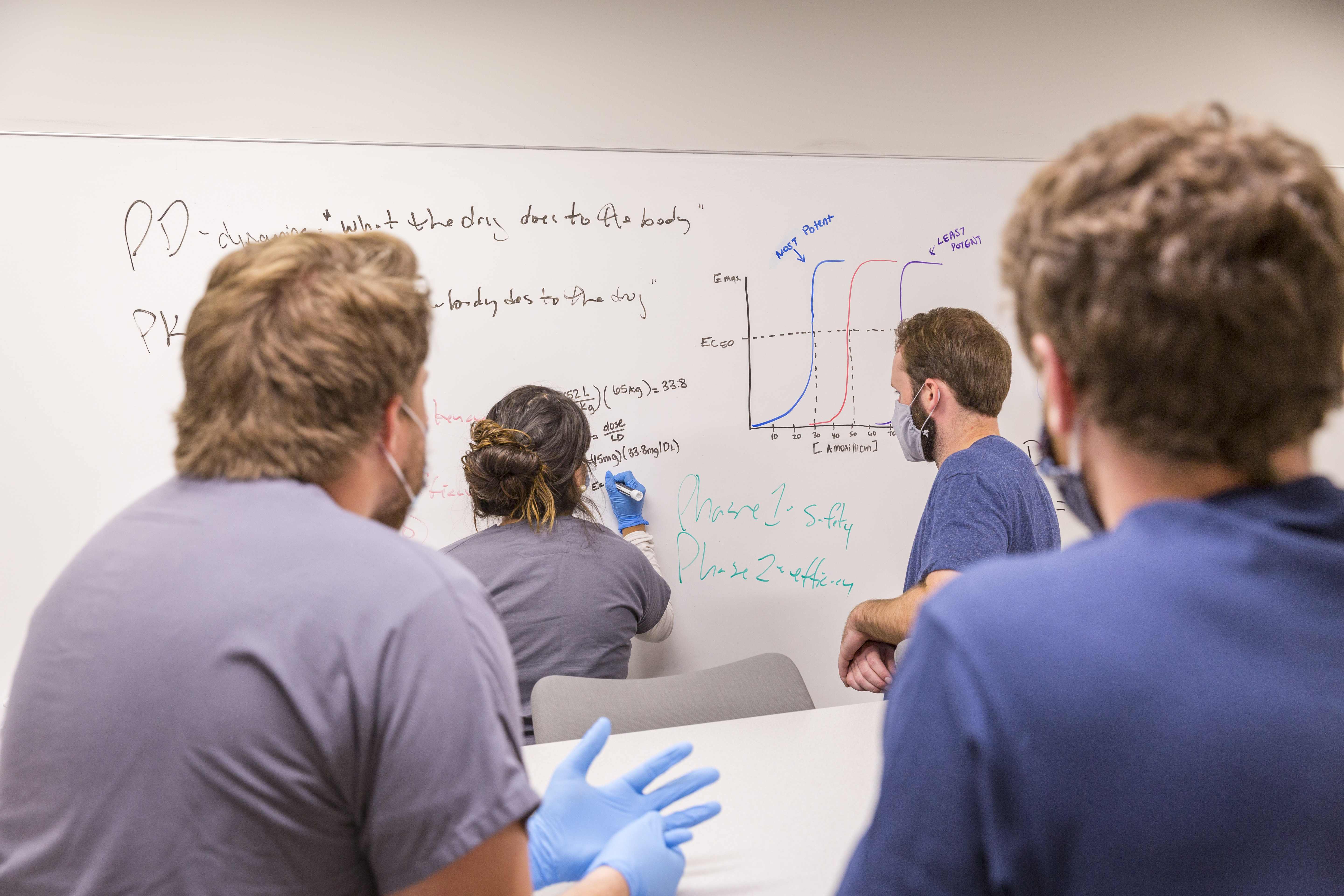
- Hospitals, medical centers
- Private practice
- Government, military
- Community health centers, rural health clinics, pro bono clinics
- Urgent care
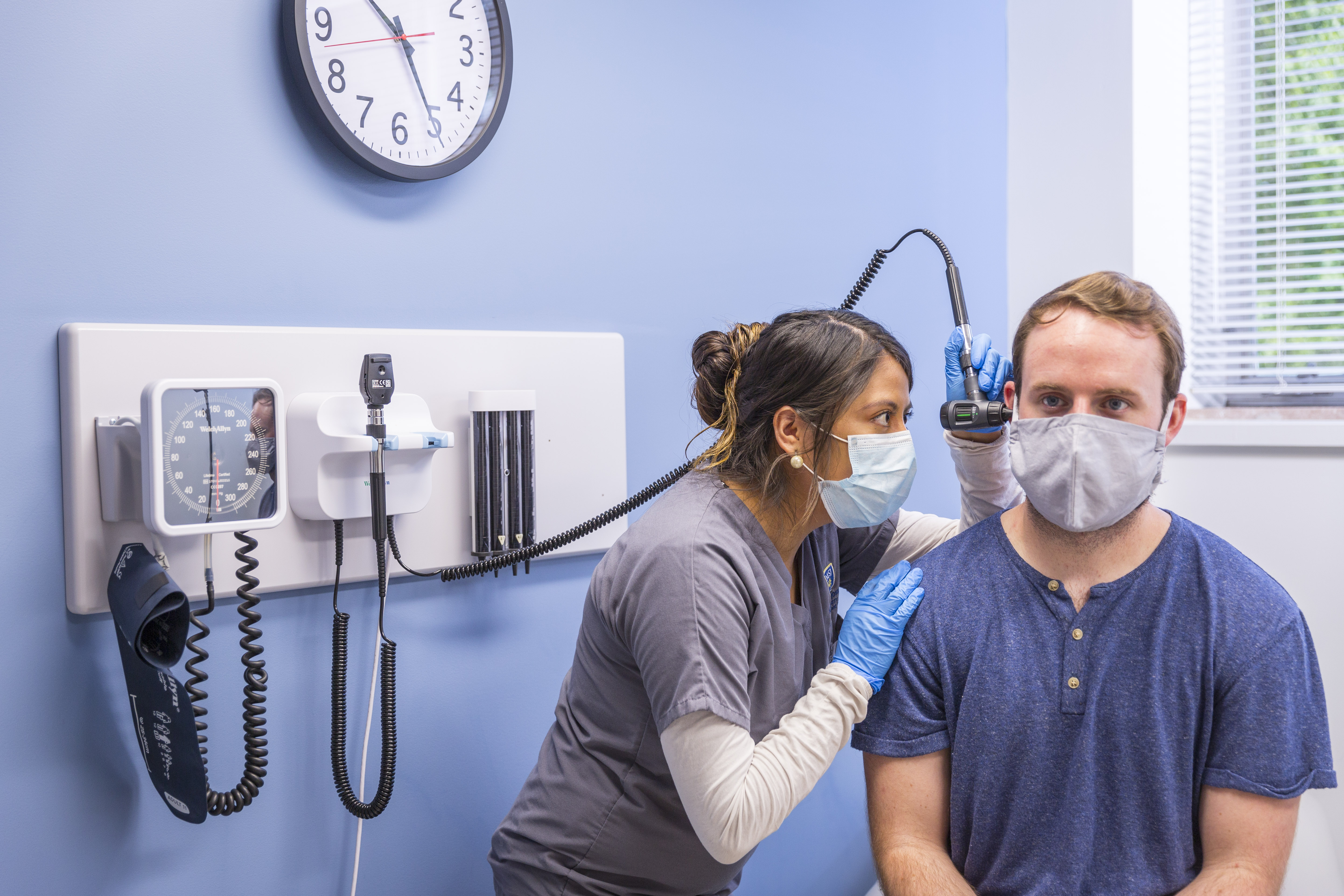
Physical Therapy
Physical therapists are health care professionals who assist individuals of all ages in maximizing their functional abilities. Physical therapists care directly for patients with musculoskeletal or neuromuscular conditions in order to restore function, improve mobility, relieve pain, and prevent or limit permanent physical disabilities.
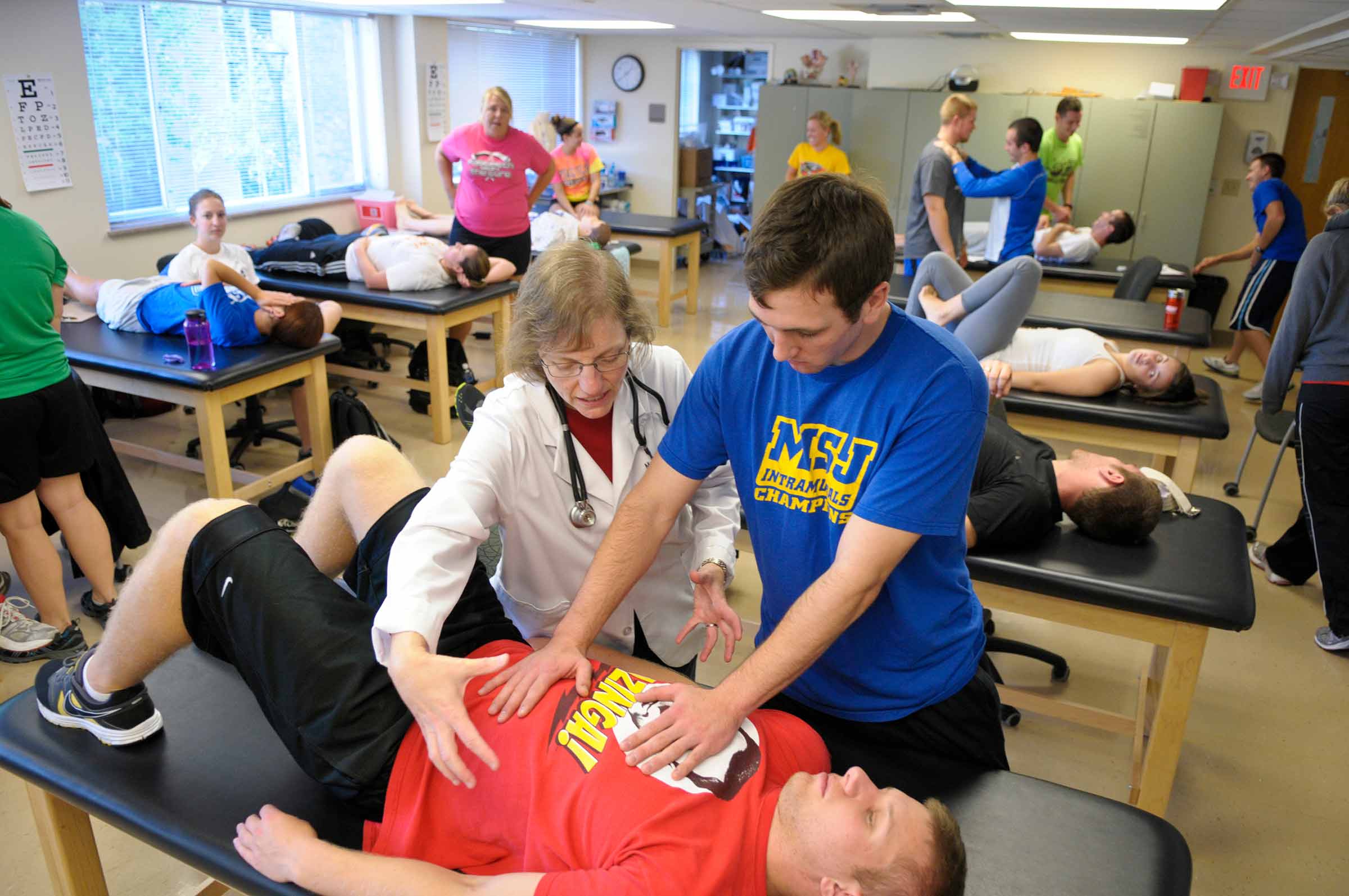
Doctor of Physical Therapy
- Hospitals, medical centers
- Private practice
- Outpatient clinics
- Home health agencies, nursing facilities
- Schools
- Sports and fitness centers
- Corporate wellness settings
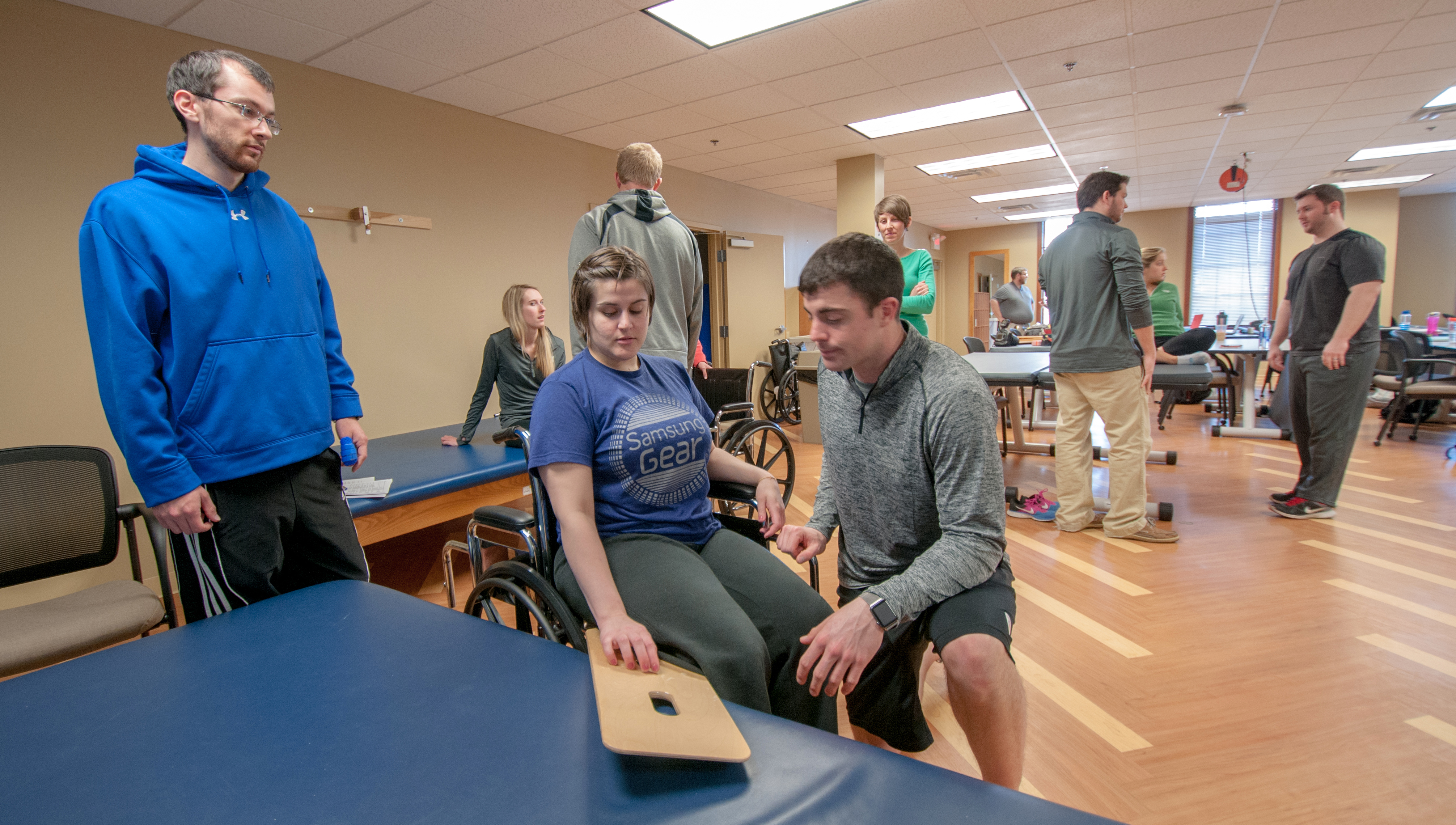
Podiatry
- Surgery
- Orthopedics
- Public Health
- Sports Medicine
- Pediatrics
- Dermatology
- Radiology
- Geriatric
- Diabetic Foot Care
Public Health
You may choose any undergraduate major that fits your interest. Some to consider for this major would be biology, biochemistry, chemistry, health and exercise science, natural science, nursing, psychology, sociology, or social work.
- Master of Public Health (MPH)
- Master of Public Administration (MPA)
- Master of Science in Biostatistics
- Master of Science in Epidemiology
- Master of Non-Profit Management (or Leadership)
- Behavioral Sciences
- Biostatistics, Informatics
- Community Health
- Environmental Health
- Epidemiology
- Health Disparities
- Health Policy
- Health Promotion
- Health Communication
- International Health
- Maternal and Child Health
- Social Sciences
Registered Dietician and Nutritionist (Graduate)
What we eat and drink significantly impacts our health, and controlling diet can prevent or improve many health problems. Nutritionists use food science to help people become or remain healthy. Registered Dieticians (RDs) are nutrition experts who have met the Commission on Dietetic Registration’s (CDR) criteria to earn the RD credential. They work in a wide variety of employment settings, including health care, business and industry, community/public health, education, research, government agencies and private practice.
You may choose any undergraduate major that fits your interest. Some to consider for this major would be biology, biochemistry, chemistry, or nursing.
Department of Exercise Science and Integrative Health is in discussions with Union Institute and other regional programs regarding articulation agreements for MSDN admissions.
- Hospitals, clinics (public & private)
- Nursing homes, home health agencies
- Fitness centers
- Corporate wellness
- Food industry
- Schools (in research, education, athletics, or working with the school cafeterias)
- Private practice
- Professional sports teams
Social Work (Graduate)
Social work is a profession that is committed to helping all people function the best they can in their environment. Master’s level social workers (MSWs) can operate in more advanced and independent career options, such as in clinical settings or private practice.
- Schools (all levels)
- Hospitals, medical centers, physician offices
- Mental health and substance use clinics
- Senior centers, nursing homes
- Private practice
- Prisons
- Corporations
- Military
- Social services agencies
- Non-profits
- Elected office and policy advocacy organizations
Speech Language Pathology
- Master of Science in Speech Language Pathology
- Clinical Doctorate in Speech Language Pathology (CScD, SLPD)
- PhD in Communication Science Disorders (CSD)
- Hospitals, medical centers
- Private/group practice
- Residential & non-residential facilities for adults and children with disabilities
- Education (K-12 through higher education)
- Developmental learning centers
- Government (federal & state)
- Uniformed services
- Hearing conservation programs
Veterinary Medicine
- Academia
- Animal shelters
- Associations (such as non-profit organizations, shelters)
- Small animal clinic
- Large animal clinic
- Rehabilitation and sport vet medicine
- Emergency vet medicine
- Zoo medicine
- Wildlife medicine
- Aquatic vet medicine
- Computer software development
- Government, military
- Diagnostic laboratories
- Private industry
- Forensic vet medicine

